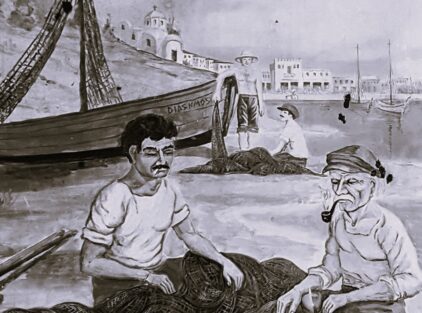by Christos Zabounis
In 1971, the Academy of Motion Picture Arts and Science selected then-30-year-old Bernardo Bertolucci’s first film, The Conformist, as a screenplay Oscar nominee. For some strange reason, looking for the word, both in the Dictionary of the Modern Greek Language by Professor Georgios Babiniotis and in the Useful Dictionary of the Greek Language of the Academy of Athens, there was no Greek equivalent. How funny! From its etymology it follows that it is a counter-loan from us. Conformo <con + formo< ancient Greek form. The Lexigram clearly states the meaning of conformism, with an “m”. Adapting to established social ethics and established norms of behavior. It is obvious that almost all of us have been concerned at some point in our transit life, our attitude towards formulas and conventions. Possibly in our youth many had joined non-conformism. Alberto Moravia’s scripted adaptation of the novel masterfully captures the inner conflict of an official in Mussolini’s fascist government (Jean-Louis Trintignant) when he is ordered to execute his mentor and exiled in Paris, his former university professor. However, his desire to have a normal life, the famous normality, is overturned by the “dominance” of the regime. Love, too, is divisive. On the one hand, his bourgeoise wife – the dream of a generation of teenagers, Stefania Sandrelli – and on the other, the resistant Dominique Sanda, perhaps the woman he would like to have, all compose an intractable puzzle. The end alludes to the flexibility, as we would call it today.













